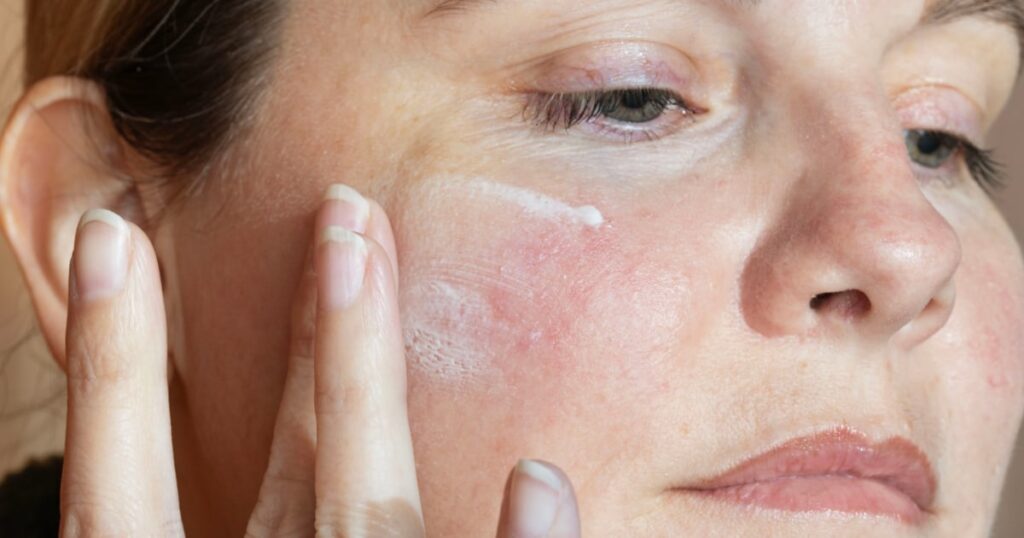Rosacea is a chronic skin condition that results in redness and visible blood vessels primarily on the face. It can cause significant discomfort and self-consciousness, affecting the quality of life for many individuals. Effective rosacea treatment options are essential for managing this condition. Recent studies, including findings from the Mayo Clinic, emphasize the importance of personalized skin care routines. For instance, adopting gentle cleansing practices and utilizing specific topical treatments have proven beneficial. Notably, approximately 16 million adults in the U.S. experience rosacea, highlighting the need for widespread awareness and tailored solutions.
Understanding Rosacea: Types and Triggers
Rosacea presents in various forms, classified into different subtypes. The main types include:
- Erythematotelangiectatic rosacea: Characterized by persistent redness and visible blood vessels.
- Papulopustular rosacea: Often referred to as acne rosacea; it features red bumps and pustules.
- Phymatous rosacea: Marked by thickened skin and often affects the nose.
- Ocular rosacea: Can result in eye irritation and inflammation, requiring specialized treatment.
Identifying triggers is crucial for managing rosacea effectively. Common triggers include spicy foods, alcohol, temperature extremes, and stress. One effective approach is documenting flare-ups alongside dietary choices and environmental conditions to pinpoint specific aggravators. For a more tailored plan, consider consulting reputable sources like the Cleveland Clinic, which provides guidance on managing such reactions.
Developing a Skincare Routine for Rosacea
When addressing rosacea treatment, developing a gentle skin care routine is vital. Here are key steps:
- Cleanser: Select a mild, non-irritating cleanser to avoid aggravating your skin.
- Moisturizer: Use a soothing moisturizer to keep skin hydrated, which can reduce the appearance of redness.
- Sun protection: Utilize broad-spectrum sunscreen with SPF 30 or higher, as sun exposure can severely exacerbate rosacea symptoms.
- Topical treatments: Medications such as metronidazole or azelaic acid are often prescribed to control flare-ups.
Additionally, identifying individual skin sensitivities can be beneficial. The American Academy of Dermatology offers resources to help tailor your skincare routine effectively.
📊 Key Information
- Core Treatment: Custom skincare and diet
- Goal: Minimize flare-ups
Diet and Lifestyle Modifications
Modifying dietary habits and lifestyle choices can significantly influence the management of rosacea. Consider these tips:
- Hydration: Drink plenty of water to keep your skin hydrated.
- Avoid triggers: Steer clear of known irritants, including spicy foods and alcohol.
- Balanced diet: Incorporate a balanced diet rich in antioxidants, which can help soothe inflammation.
- Stress management: Engage in relaxation techniques such as yoga or meditation to help reduce stress-related flare-ups.
Consulting with health professionals can provide personalized dietary advice. You can refer to the National Institutes of Health for further insights and all-around guidance on lifestyle adjustments beneficial for rosacea sufferers.
Key Takeaways and Final Thoughts
In summary, effective rosacea treatment involves a combination of personalized skincare, awareness of triggers, and lifestyle modifications. Embrace a nourishing regime and remain proactive about avoiding common irritants. By leveraging recent findings and tailored approaches, numerous individuals have successfully managed their symptoms. For a more detailed exploration of treatment methodologies, consider visiting the American Family Physician.
❓ Frequently Asked Questions
Can rosacea be cured?
There is currently no cure for rosacea, but effective management strategies can significantly reduce and control symptoms.
What treatments are recommended?
Common treatments include topical medications, lifestyle adjustments, and avoiding known triggers to minimize flare-ups.
To deepen this topic, check our detailed analyses on Beauty & Skincare section.







